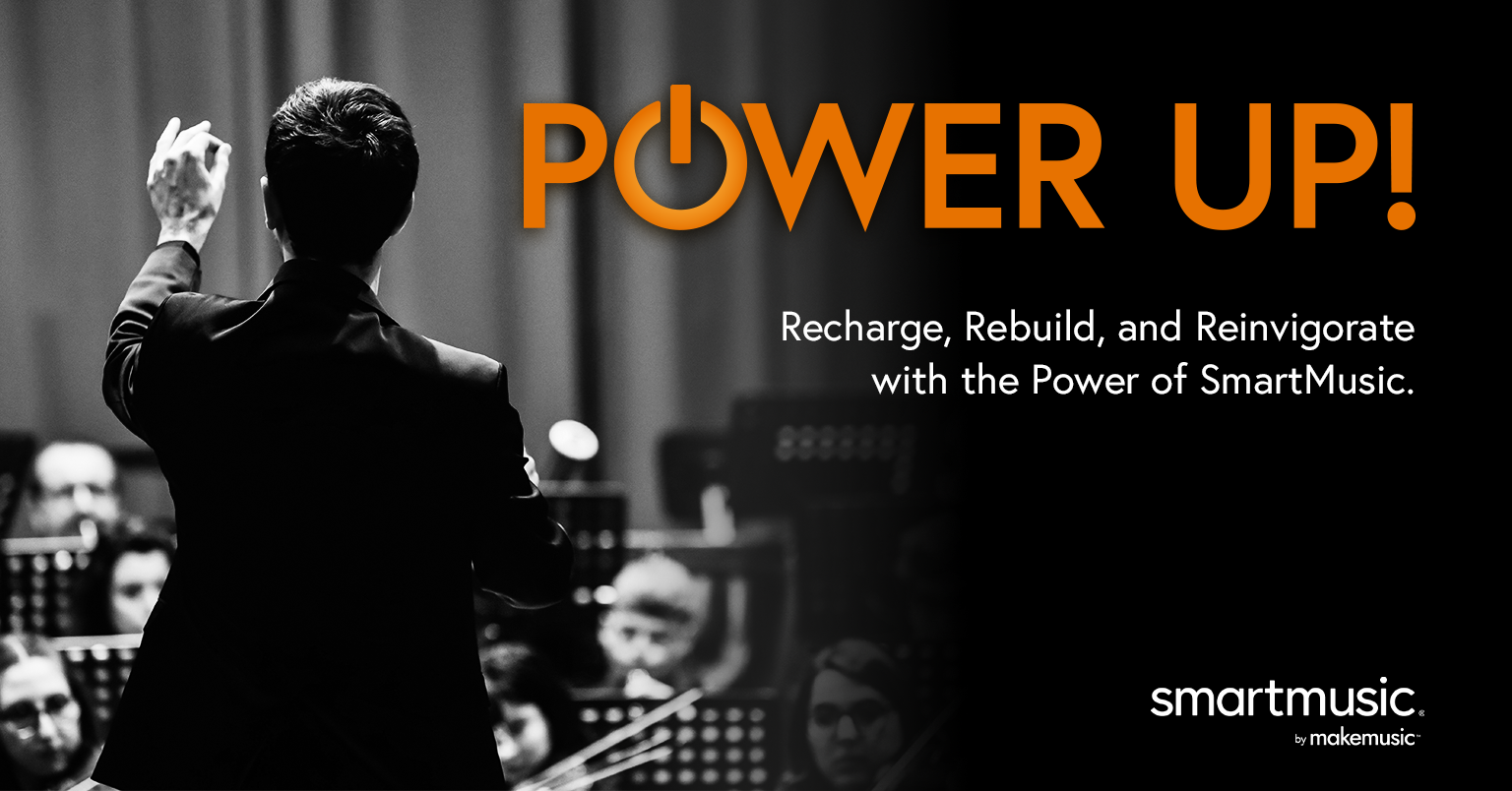
This year feels different. While many programs may be in a rebuilding mode, a lot of things have become more certain. Music is unquestionably returning to many of the schools that have been facing logistical challenges for the past 2 years due to safety protocols. For the first time in a long time, the beginning of the school year will sound different. Our rehearsal spaces, our auditoriums, even our hallways will once again be filled with the beautiful sounds of instruments and voices. Even if you are one of the many teachers entering a rebuilding phase, you are likely entering the year confident in your rehearsal schedule and knowing that you will finally begin rehearsals in person.
Clearly, there are a lot of things to celebrate, and it is important that we give ourselves some room (and grace) to appreciate the opportunities that lie ahead. All of this said, I am also hearing from many conductors who are feeling overwhelmed by how much ground they have to make up. Worrying about how much rebuilding they are facing. Concern over recharging their programs and reinvigorating their students and ensembles. In general, a lot of folks are asking the simple question—“Where do I even start?”
It is a great question. And to help plan a way forward, we are thrilled to introduce a new blog series: “Power Up! Recharge, Rebuild, and Reinvigorate.” We have reached out to some amazing educators in the field to share thoughts on everything from rehearsal planning to tone, articulation, rhythm, music literacy, and much more. In addition to their written blog posts, many have also provided SmartMusic playlists that you can share with your students or use in rehearsal. I have already heard from schools using SmartMusic to help prepare for performances at state conferences. Others are using it as a means of providing instrumental feedback 5 days a week even though they may only meet in school twice a week. And most importantly, I am hearing about how SmartMusic is impacting rehearsals themselves, because when students use SmartMusic outside of rehearsal, ensembles are then able to make music in rehearsal instead of chasing down notes and rhythms.
Before We Begin
As mentioned earlier, this “Power Up!” series will provide a lot of practical information when it comes to the beginning of the school year, setting expectations, and establishing daily routines. With so much on our agenda this coming year, it can be easy to jump in before we address what I believe is one of the most overlooked experiences of being in an ensemble, especially toward the beginning of the year: sharing our expressive voices with each other.
I love how band directors have a plan to tackle ensemble sound on day one. How orchestra teachers want to address intonation and balance right away. How chorus teachers want to work on diction, resonance, and more. These are all critical to a successful performance, and of course are an important part of any musician’s growth.
However… Do these fundamentals fully reinvigorate a program?
Think about where we are as a nation concerning mental health. Think about the conflict happening outside our school buildings (and even in our school buildings). Think about inequity, privilege, access, the definition of family to various students, whether they feel safe, and what motivates them to come to school.
For more students than we realize, the reason they want to come to school is to make music in your rehearsal. They want to come because of how they feel in rehearsal. And, perhaps more now than ever, it is important that we acknowledge the power of music—in fact, the superpower of music—to bring joy to our students, unity to our communities, and to provide a voice to those who feel they have never had the opportunity to be heard. Fundamentals alone are not going to unlock these powerful and regenerative emotions. We need to provide an opportunity for these kids to experience music as quickly as possible. Maybe you typically have a grade 4 ensemble and you choose to read two grade 2 pieces that can make a big emotional impact on your students. Maybe you focus on expression on day one, and then tackle fundamentals the following week. For many of us, it is a balancing act to figure out the relationship between the two. But we cannot forget how badly some of these students just need a moment to hold their instrument (or use their voice), and just play their hearts out. Maybe this is the year that the very first expectation you set is simply to make the most beautiful music possible. Some students may not yet sound the best, but maybe that initial “performance” will help them feel their best and prepare them to invest in the fundamentals work to come.
I am so incredibly excited for the year ahead. I am grateful for the amazing clinicians that offered so many wonderful thoughts. I am inspired by all the music teachers throughout the world who are using their ensembles as a platform to bring beauty into a world that so desperately needs it. And I am thankful for you. For the rebuilding you will do, for the music you will make, for the kids you will impact—especially for the kids you will save.
And now—maybe you have a lot of logistical questions. How do some of the most successful teachers in the country handle certain fundamentals? Let’s dive in, always keeping in mind that all our music is ultimately rooted in our emotions and our experiences.
Here’s to an incredible year of music making and powering up our ensembles!
